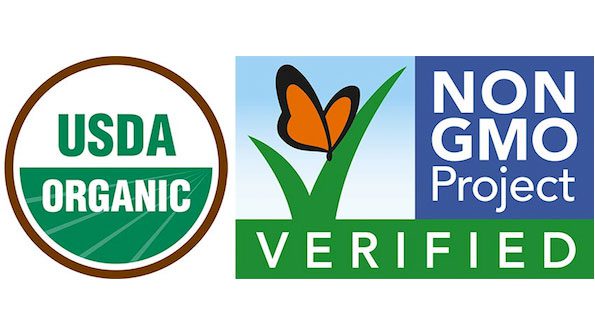
Photo: USDA
National Bioengineered Food Disclosure Standard
In July 2016, federal legislation (Public Law 114–216) required that the U.S. Department of Agriculture (USDA) create, by July 2018, a “national bioengineered food disclosure standard”. Many details of the disclosure requirements remain to be determined as part of USDA rulemaking. However, the legislation specifies several elements:
- Products that (may) contain genetically engineered ingredients will need to carry a disclosure statement. These disclosure statements may be either (1) text statements, such as “made using genetic engineering” or “may contain bioengineered ingredients”; (2) a uniform symbol, to be developed by USDA; or (3) a QR code
- Several types of food will be exempt from labeling:
- Meat, eggs, and dairy, and other food derived from animals will not be subject to labeling unless the DNA of the animal was modified
- Many products containing meat, poultry, or eggs will not be subject to regulation (even if the products contain GE ingredients)
- Soups
- Beverages
- States are prohibited from enforcing any standards related to labeling whether foods were produced using bioengineering, unless such standards are identical to the federal standard
Non-GMO labels
Voluntary labels stating that foods are non-GMO are widely available. Foods and food products that are certified as organic by USDA’s National Organic Program meet a set of standards that prohibits all use of GE technology in organic food production and processing, so the USDA Organic label indicates that foods do not contain GMO ingredients.
In addition, companies can label products as “non-GMO” or not “made with genetic engineering”. The most prevalent voluntary label that firms use to communicate that their products are non-GE is the “Non-GMO Project Verified” label. Non-GMO Project Verified products must meet a threshold of no more than about 0.9 percent GE content, by weight, which is similar to the EU’s threshold for mandatory labeling of processed foods made with GE ingredients. To verify that non-GE ingredients are used, traceability and segregation of inputs are also required. Inputs and crops for which GE varieties are available—including alfalfa, canola, corn (except popcorn), cotton, papaya, soy, sugar beets, apples, potatoes, squash, animal-derived ingredients, and a host of production and processing inputs—are on Non-GMO Project’s “risk list.” For products where at-risk ingredients make up at least 5 percent of the product’s dry finished weight, Non-GMO Project verification requires testing of either ingredients or the finished product.
By John Bovay, Former Assistant Professor, Department of Agricultural and Resource Economics
Published September 17, 2017
